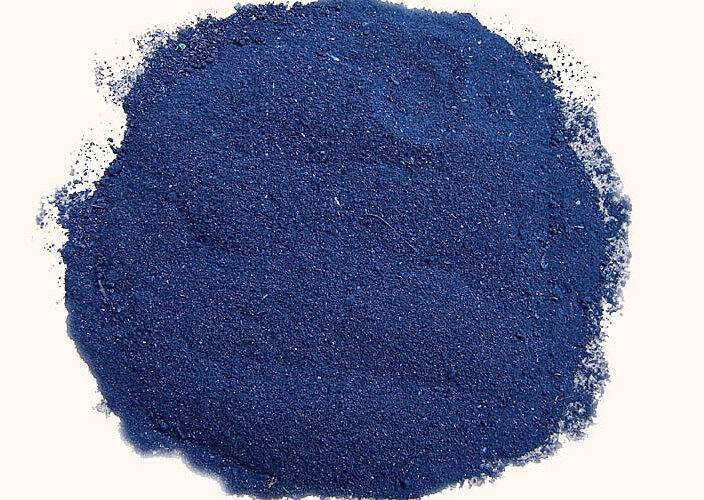In the realm of holistic medicine, there exists a treasure trove of ancient remedies waiting to be rediscovered for their profound healing properties. Among these, Qing Dai, also known as indigo naturalis, emerges as a beacon of hope for individuals grappling with the challenges of ulcerative colitis (UC).
Understanding Ulcerative Colitis
Ulcerative colitis, classified as a subtype of inflammatory bowel disease (IBD), manifests as chronic inflammation and ulceration primarily affecting the colon and rectum. This condition imposes a substantial burden on individuals, characterized by enduring symptoms such as abdominal pain, frequent diarrhea, rectal bleeding, and profound fatigue. These symptoms not only undermine physical health but also inflict emotional and psychological distress, significantly impacting overall well-being.
The Promise of Qing Dai for Ulcerative Colitis
Derived from the leaves of the indigo plant, Qing Dai boasts a rich history steeped in traditional Chinese medicine (TCM), where it has served as a cornerstone in the treatment arsenal for numerous inflammatory ailments, notably gastrointestinal disorders. Its striking blue color, a visual testament to its high concentrations of indigo and indirubin, not only captivates the eye but also signifies the potent therapeutic potential that lies within. Beyond its aesthetic appeal, Qing Dai harbors a diverse array of bioactive compounds that endow it with remarkable anti-inflammatory, antioxidant, and immunomodulatory properties.
These attributes have garnered significant attention from researchers and practitioners alike, positioning Qing Dai as a promising candidate for addressing the complex inflammatory pathways implicated in conditions such as ulcerative colitis. Its multifaceted action in quelling inflammation, scavenging free radicals, and modulating immune responses holds immense promise in mitigating the symptoms and promoting healing in individuals afflicted by this chronic inflammatory condition. As the scientific community delves deeper into the mechanisms underlying Qing Dai’s therapeutic effects, its integration into modern medical practice heralds a harmonious convergence of ancient wisdom and contemporary science, offering renewed hope and healing to those navigating the challenges of gastrointestinal disorders.
Mechanisms of Action
Recent scientific studies have shed light on how Qing Dai works its magic in tackling ulcerative colitis (UC). Essentially, it helps calm down inflammation and supports gut healing. Think of it like this: Qing Dai steps in to cool down the body’s inflammatory response, like turning down the heat on a stove. It also acts as a shield, protecting the gut from damage caused by harmful molecules called free radicals. Plus, it has this neat trick of fighting off bad bacteria that can make UC symptoms worse. With Qing Dai on the scene, there’s hope for easing UC symptoms and improving overall well-being for those living with this condition.
Clinical Evidence
Clinical studies examining the effectiveness of Qing Dai in treating ulcerative colitis have yielded encouraging results, showing significant improvements across various key indicators. These studies have demonstrated that Qing Dai administration leads to notable reductions in disease activity scores, improvements in endoscopic findings, and enhancements in overall quality of life measures among UC patients. These findings underscore the potential of Qing Dai as a valuable therapeutic option in managing ulcerative colitis, offering tangible benefits for those grappling with the challenges of this chronic inflammatory condition.
Safety Profile and Administration
Qing Dai presents a compelling option for ulcerative colitis management, boasting a favorable safety profile and versatile administration methods. Its minimal adverse effects and low risk of drug interactions make it an attractive choice, particularly for individuals seeking natural alternatives or experiencing difficulties with conventional therapies. Moreover, Qing Dai’s adaptability in administration, whether orally, topically, or through other routes, offers flexibility to accommodate individual preferences and optimize therapeutic outcomes. This combination of safety and convenience positions Qing Dai as a promising option in the treatment landscape of ulcerative colitis, offering renewed hope and potential relief for those grappling with this chronic inflammatory condition.
Exploring Natural Treatments for Ulcerative Colitis
A Promising Ulcerative Colitis Treatment
Although ongoing research is needed to fully understand Qing Dai’s optimal dosing, long-term safety, and mechanisms of action in treating ulcerative colitis, its emergence as a promising therapeutic agent signifies a significant step forward in integrative medicine. By seamlessly combining ancient wisdom from traditional healing practices with modern scientific inquiry, Qing Dai exemplifies the potential synergy between natural remedies and contemporary medicine. As we delve deeper into the complexities of UC pathogenesis and refine treatment strategies, Qing Dai shines as a beacon of hope, offering renewed healing possibilities for individuals grappling with the challenges of inflammatory bowel disease.


